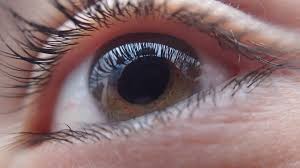
What is Glaucoma and who’s at risk?
Glaucoma is the name given to a group of eye conditions in which the main nerve to the eye (the optic nerve) is damaged where it leaves the eye. This nerve carries information about what is being seen from the eye to the brain and as it becomes damaged vision is lost. This results in misty and patchy vision, with eventual loss of central vision, although this is rare. Although any vision which has been lost to glaucoma cannot be recovered, with early diagnosis, careful monitoring and regular use of treatments, the vast majority of people retain useful sight for life. The only way to know if you have glaucoma is to have your eyes checked regularly. Glaucoma is usually painless and does not cause symptoms until it is quite advanced. It is therefore important to have regular eye health checks which test for glaucoma at an early stage. Risk factors for developing glaucoma include: increasing age (usually over the age of 40), significant family history, people who are short-sighted and long-sighted, and people with Diabetes. These groups should make extra sure that they have their eyes tested regularly! – Dr Jo-Anne. Q)










